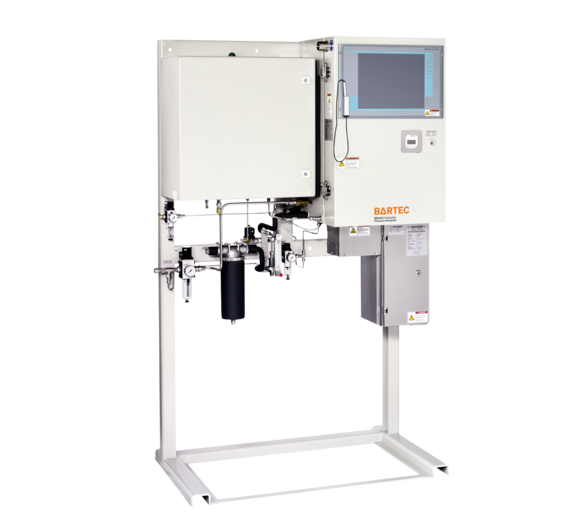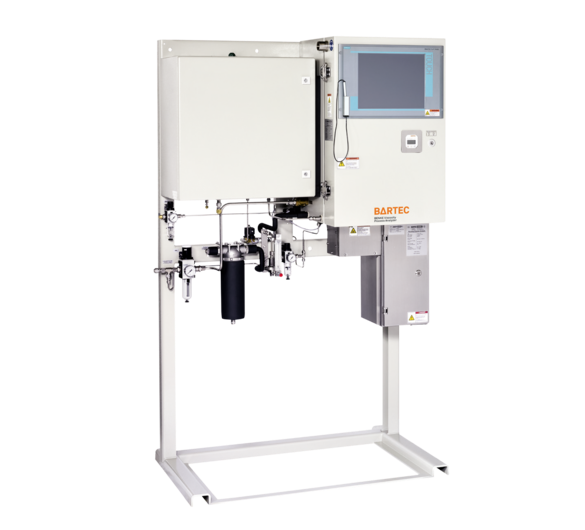


Cold Filter Plugging Point Process Analyzer

003943-HW-WIN-O43
Overview
To remain competitive, today’s refiners must employ all optimization and product control techniques available. The use of online physical property analyzers is one of the key features to reach those objectives because they measure important quality properties in the process directly.
| Technology | discontiniously mearement of CFPP with linear cooling bath |
|---|---|
| Method | compliant with: ASTM D 6371 DIN EN 116 DIN EN 16329 (linear cooling bath) IP 309 |
| Sample at inlet | filtered 50 μm, no suspended water ( 500 ppm), bubble-free 10 to 40 l/h 1 to 4 bar (14.5 to 58 psi) max. 40 °C, max. 37 cSt at inlet temperatur |
| Sample at outlet | atmospheric pressure |
| Electrical data | max. 8 outputs (4 to 20 mA; 1000 Ω), active isolated on request 4 to 20 mA; 160 Ω DC 24 V; max. 0.5 A; sum alarm Ready/Come-Read, Power identification high: DC 15 to 28 V; low: DC 0 to 4 V |
| Communication | MODBUS RTU/TCP (RS485, RS422, VDSL/FO (IS) MODBUS/TCP via FOC is remote software with modem, ISDN, Ethernet via VDSL modem FO (FS) |
| Ambient conditions | operation 5 to 35 °C (41 to 95 °F) storage -20 to 60 °C (-4 to 140 °F) operation 5 to 80 % relative humidity, non-corrosive; storage 5 to 80 % relative humidity, non-corrosive IP 54 (comparable with NEMA 13) |
| HMI | touch display 19" remote access on request cyber security operating system Windows10 enterprise LTSB Bartec Benke control software PACS |
| Process connections | tube fittings: typically Swagelok 6mm/12mm/18mm; others on request sample inlet for 1 sample stream and 1 validation stream sample outlet vent line (if required) coolant (if required) |
| Weight and dimensions | approx. 400 kg (W x H x D) approx. 1140 x 2130 x 710 mm free space right: 150 mm/left: 100 mm |
The cold filter plugging point (CFPP) is the lowest temperature at which diesel and domestic heating fuels will pass through a filter in a given time when cooled under certain conditions. CFPP is supposed to give an estimate for the lowest temperature at which these fuels will flow in fuel systems without problems. This temperature is important especially in cold temperature regions where high CFPP of diesel fuel could result in clogging up vehicles’ fuel systems.


